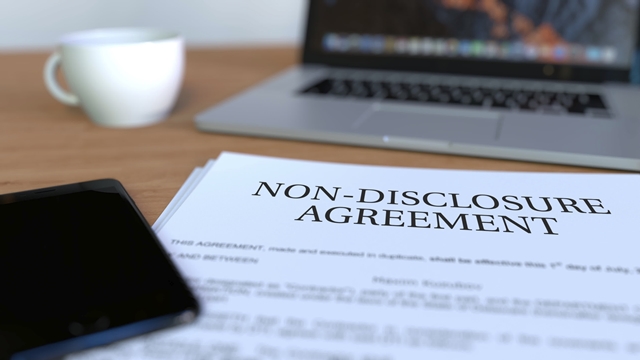

Employee Nondisclosure Agreements Banned in New Jersey

New Jersey continues to enact employment laws at a rapid pace under the Murphy Administration. The latest is a ban on employee nondisclosure agreements, which Governor Murphy signed into law on March 18, 2019. The law takes effect immediately and applies to all employment contracts and agreements entered into, modified, or amended on or after March 18, 2019, making New Jersey the third state, after New York and California, to limit nondisclosure agreements.
Key Provisions
Under the law:
- Employment contract provisions “that waive[] any substantive or procedural right or remedy relating to a claim of discrimination, retaliation, or harassment” are unenforceable.
- Employers cannot contract with employees to prospectively waive their rights under the New Jersey Law Against Discrimination (LAD) “or any other statute or case law[.]”
- Nondisclosure provisions in employment contracts and settlement agreements, which have the purpose of concealing the details of a claim of harassment, discrimination, or retaliation, are unenforceable against current employees or former employees (employee). Such provisions are enforceable against employers unless “the employee publicly reveals sufficient details of the claim so that the employer is reasonably identifiable[.]”
- Every settlement agreement resolving an employee’s claim of harassment, discrimination, or retaliation must contain a bold and prominently placed notice that “although the parties may have agreed to keep the settlement and underlying facts confidential, such a provision . . . is unenforceable against the employer if the employee publicly reveals sufficient details of the claim so that the employer is reasonably identifiable.”
- Employers who enforce or attempt to enforce nondisclosure agreements or waivers of rights will be liable for the employee’s reasonable attorneys’ fees and costs.
The law also prohibits retaliation and provides a private right of action:
- Employers are prohibited from retaliating against any person who refuses to enter into an agreement or contract containing a nondisclosure agreement or waiver of right (as detailed above).
- Employees subjected to retaliation may file a claim in the Superior Court of New Jersey for the full array of damages (compensatory, punitive, equitable relief, etc.) and attorneys’ fees and costs.
The law does not prohibit:
- Non-compete agreements with employees.
- Agreements requiring employees to refrain from disclosing proprietary information, such as trade secrets, business plans, and customer information.
- Nondisclosure agreements with respect to wage and hour claims.
- Collective bargaining agreements between employers and bargaining units that contain waivers of rights relating to claims of discrimination, retaliation, or harassment.
- Confidentiality provisions in settlement agreements concerning the amount of any settlement payment.
Impact on Employee Arbitration Agreements?
The law’s impact on pre-dispute employee arbitration agreements entered into or amended on or after March 18, 2019 is unclear. The law contains broad provisions prohibiting and making unenforceable contractual provisions requiring employees to waive their rights under the LAD and other laws. This arguably includes the right to a jury trial, which must explicitly be waived for arbitration agreements to be enforceable in New Jersey. If a court interprets these provisions as prohibiting pre-dispute employee arbitration agreements, a challenge to the provisions as preempted by the Federal Arbitration Act, which promotes the use of arbitration to resolve disputes, can be expected. While some employers already have faced difficulty enforcing arbitration agreements in New Jersey state courts, the U.S. Supreme Court held last year that under the Federal Arbitration Act employers can require employees to arbitrate their disputes individually and to waive their right to resolve their employment disputes via class or collective action.
Takeaways for Employers
Employers should review their standard employment contracts for language that runs afoul of the law’s prohibition on nondisclosure and waiver of rights provisions. Standard settlement agreement language should also be revised to conform to the law’s requirements as set forth above.
Employers may have significant difficulty enforcing employee arbitration agreements entered into or amended on or after March 18, 2019. The impact of the law on arbitration agreements will develop through case law. New Jersey employers who enter into arbitration agreements with their employees as standard practice should closely monitor developments.
If you have any questions regarding employee arbitration agreements or compliance with New Jersey employment law, contact the author, Benjamin S. Teris (bteris@postschell.com), or any member of Post & Schell's Employment & Employee Relations Practice Group.

